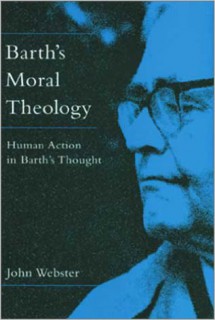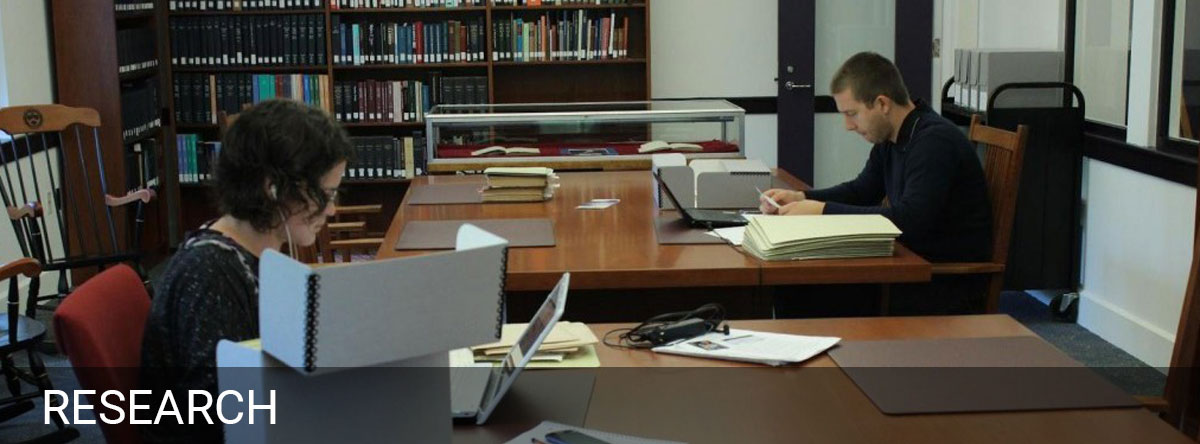 Webster, John. Barth’s Moral Theology: Human Action in Barth’s Thought (Edinburgh: T. & T. Clark, 1998), ix + 223 pp. $55.00 (hardback).
Webster, John. Barth’s Moral Theology: Human Action in Barth’s Thought (Edinburgh: T. & T. Clark, 1998), ix + 223 pp. $55.00 (hardback).
Reviewed by George Hunsinger ()
Whether there is indeed such a thing as “human freedom” in relation to God is not a question that divides one theology from another or one church from the next. No theology or church would deny it. The disputed question, rather, concerns the conditions for the possibility of such freedom. Moreover, whether divine grace is a “necessary condition” for human freedom is again not divisive, at least not for the great majority of ecumenical theologies and churches, since exponents of vulgar “Pelagianism” are rare (and may not even have included Pelagius). The divisive question actually cuts much deeper. It pertains to the matter of how divine grace and human freedom are related. Formally speaking (and leaving much aside), the options would seem broadly to be twofold. Either the relationship is fully or largely intelligible without resort to paradox, or else it is not. Interpretations that are more nearly philosophical or rationalistic in orientation tend to eschew paradoxical solutions. Those that are more nearly biblical or hermeneutical, on the other hand, are more likely to rest in solutions that are in some measure paradoxical, and sometimes paradoxical to a high degree.It is not a good sign for the state of theological discussion that these rather fundamental observations are often overlooked. In the modern period it has often been assumed that paradoxical solutions have no standing, though one would be hard pressed to find a time when the paradoxical option has lacked distinguished representatives. After all, the Augustinian tradition on grace and freedom has shown a substantial tolerance for paradox on the grounds that paradox is the worst form of solution—except for every other form. Nonparadoxical solutions are thought to suffer from two major defects. They fail to be hermeneutically adequate with respect to the biblical witness, and they end up endorsing one of two mistakes: either an untenable determinism (by pitting sovereign grace against freedom) or else an equally untenable libertarianism (by pitting independent freedom against grace). Augustinian paradoxes are designed precisely to avoid pitting grace against freedom (and vice versa). From an Augustinian standpoint, charges of “determinism” from exponents of non-paradoxical solutions usually betray an untenable libertarianism, whether crude in form or subtle. Moreover, charges of “incoherence” from the same camp typically fail to advance the discussion, since they simply beg the question of adequacy, often, it seems, unwittingly. Exponents of non-paradoxical solutions often seem to proceed as though deliberately paradoxical solutions must be as non-paradoxical as their own.
Karl Barth has been a distinguished representative of the Augustinian tradition on grace and freedom in our time. He has represented it in the radicalized form that it received from the Reformation, and particularly from Luther and Calvin. He has done so largely on the grounds of hermeneutical adequacy to Holy Scripture, and in a climate dominated by modernist, philosophical and rationalistic modes of thought that presuppose the inadmissability of paradox. Consequently, he has often been rebuffed as an ugly duckling. How often has it been alleged that no place exists in his thought for “human freedom” as though the status of human freedom were self-evident? How often has his position been charged with “determinism” and “incoherence”. How often has it been overlooked that the Reformation version of the Augustinian tradition involves a very different theological framework or conceptual scheme than that presupposed by the critique? How often has a satisfactory discussion been thwarted because it has not been seen that decisions on these matters are not framework-neutral but framework-relative?
Two outstanding books on the place of human action in Barth’s theology have recently appeared from John Webster, Lady Margaret Professor of Divinity at Oxford University. The first, “Barth’s Ethics of Reconciliation” (Cambridge University Press, 1995), offers a way of reading Barth’s Church Dogmatics that takes seriously the inseparability Barth posited between dogmatics and ethics. Based mostly on Barth’s very last writings, it challenges interpretations that accuse Barth of passivity with respect to human freedom and of incoherence with respect to conceptual adequacy. In both cases, Webster argues, the accusations fail to grasp Barth’s “moral ontology”, a term borrowed from Charles Taylor to indicate the fundamental situation in which human beings act. The second volume, here under review, again takes up the question of “moral ontology”, (a term analogous to my previous remarks about theological “frameworks” or “conceptual schemes”) with nine essays, discussing material that runs all the way from the earlier to the later Barth. Although Webster does not make the aspect of “paradox” — or perhaps better, of “dialectic” or unresolved “antithesis” — quite as explicit as I might have (he makes no mention of what I have called “the Chalcedonian pattern”), his grasp of Barth is unerring. No better scholarship on these matters can be found in English. Together the two volumes establish Webster as one of the leading Barth interpreters in the world.
The essays are as engaging and interesting as they are important in dispelling misconceptions. After an introductory chapter that presents the book in survey, the topics are as follows: human action in Barth’s early ethics (ch. 2), grace as “the great disruption” of moral consciousness (ch. 3), original sin in Barth’s “actualistic” reinterpretation (ch. 4), human action as witness to hope in a world where “God is the framework of eschatology, not vice versa”; (Barth in a remark against Moltmann) (ch. 5), human spontaneity as at once elicited and delimited by divine action (ch. 6), the church’s mission in the context of Christ’s prophetic office (ch. 7), grace and freedom in Luther and Barth (ch. 8), and finally how the passive reception of grace by faith relates to active correspondence to grace i the Christian life (ch. 9). The thought-provoking power of Barth’s theology in articulating the continuing relevance of the Augustinian tradition (as mediated by the Reformation) comes through admirably at every point.
Many themes from this rich and stimulating discussion might be singled out for extensive comment. As Webster keenly notes, in Barth the modernist tendency to demote God into an instrumental value for human self-realization is rejected. Human activity is liberated from the dehumanizing effect of having to be the bearer of God’s kingdom. The absolute singularity of God’s action in human salvation is acknowledged. Complex interconnections among witness, participation (koinonia) and mediation in faithful human activity are delineated. The inescapability of divine judgment in the work of divine grace is not slighted. The inwardness tradition is subordinated to attentive response. The great Reformation theme is sounded that Jesus Christ is the entire ground and reality, not just the precondition, of our salvation. The crucial difference between explanatory and descriptive accounts of human freedom is recognized. That grace is fully trinitarian and christocentric for Barth is explained. That we are seen not as outsiders to grace unless we become insiders, but as insiders whether we live by it or not, is stressed. That the God of Abraham, Isaac and Jacob and the Father of our Lord Jesus Christ speaks for himself is taken with the seriousness it deserves. The significance of becoming in the conception of the divine being is not missed. These and other themes in Webster’s sensitive account are as welcome as they are beautifully set forth. The one theme that perhaps bears special mention, however, is the intrinsic perfection of Christ’s work.
It is greatly to Webster’s credit that he accords such prominence to this theme. That there is only one work of salvation, that it has been accomplished by Jesus Christ, that it is identical with his person, and that being perfect it needs no supplementation but only acknowledgement, reception, participation, anticipation, and proclamation for what it is—these are the great themes of Barth’s soteriology. Though they may separate Barth from much modernist, traditionalist and ecumenical theology, at least in the single-mindedness with which he set them forth, he believed they are nonetheless themes by which the church stands or falls. Whether his judgment was correct in this matter is a question that awaits adequate discussion by the ecumenical church. John Webster has gone a long way toward restoring this question to its proper place on the agenda of theology and church.
The views expressed here are strictly those of the author; they do not necessarily represent the views of the Center for Barth Studies or Princeton Theological Seminary.


